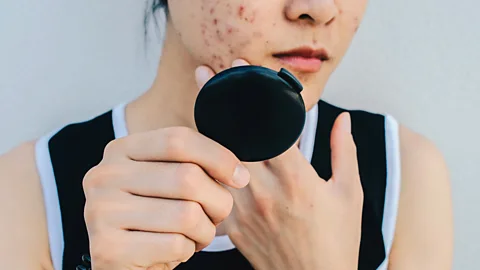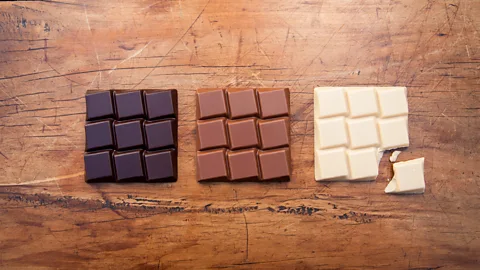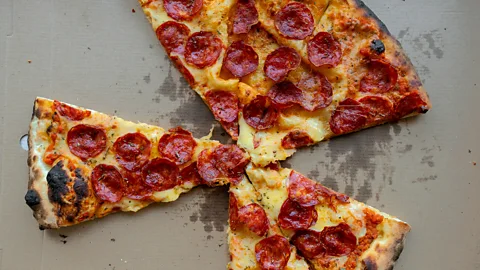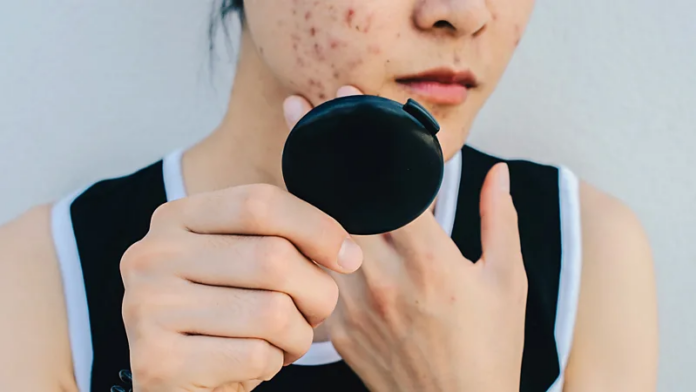Chocolate has long been considered a possible cause of acne, alongside other sweet treats. But it appears that bad reputation may be undeserved.
Chocolate has long had a reputation for causing spots. Is there any truth to it? Or is it just something parents tell their kids to avoid shelling out on sweet treats at the supermarket?
In the 1960s, several studies analysed the relationship between chocolate and acne. The biggest study – which only recruited 65 participants – found no relationship between the two. But this study has since been criticized for having numerous design flaws.
While chocolate may be off the hook, more recent studies suggest that there could, in fact, be many connections between diet and acne – particularly the Western diet, which is high in saturated fat, sugar and dairy.
Acne is a common skin condition where hair follicles in the skin become blocked by oil and dead skin cells, which causes spots to form. Severe or persistent acne from adolescence and adulthood is mostly caused by genetics, says Beibei Du-Harpur, dermatologist and clinical lecturer at Kings College London. This is because our genes determine the size of our skin’s sebaceous glands, which produce oil.

Cases of adult acne have been on the rise in recent years, especially in women, but there’s no one single reason for this, says Du-Harpur. But, she adds, certain environmental factors in our daily lives that could be playing a role.
“Generally, our lifestyles aren’t good for the human body, and perhaps acne is a manifestation of that,” she says.
In one study, researchers argue that acne is aggravated by modern lifestyles – including a Western diet high in sugar and fat – but added that the interplay between health, immune function, diet, inflammation, stress and environmental exposures needs more research.
Such triggers could include stress, fighting infections, or having PMS, says Zainab Laftah, a consultant dermatologist at Guy’s and St Thomas’ Hospital in London and spokesperson for the British Skin Foundation.
Sixty years after first being blamed for possibly causing acne, many people still regard chocolate as a possible trigger. Around nine in every 10 patients Laftah sees in her clinic ask her what foods they can cut out of their diets to improve their acne – and chocolate is one of the most common foods they ask her about.
“There’s some misconception, and a tiny bit of truth, as well,” she says.
While the main factor is genetic predisposition, certain components in a person’s diet could provoke inflammation, Laftah says. Some people will respond strongly to specific food groups, such as dairy, she adds, but this is rare, and could be related to an intolerance.
Some researchers have tried to tease out the effects of individual components of chocolate to see which ingredients may be linked to acne, but studies are far from conclusive and are relatively small. One study in 2011 examined the effects of 100% dark chocolate on acne, which means it tested the effects of chocolate independent of its sugar content. They found that chocolate consumption was still linked to exacerbated acne, but the study only included 10 participants, and there was no placebo control group.
One reason for a link between acne and diet more generally could come down to foods’ glycaemic index (GI), which indicates how quickly a food can raise blood sugar levels in the body. Numerous studies have found a link between high GI foods – such as fruit, bread and pasta – and acne symptoms.

The reason high GI foods can exacerbate acne, Laftah says, is because they cause a spike in insulin levels in the body, which drives up inflammation, which increases the production of sebum on the skin, which can then clog our pores and lead to breakouts. However, chocolate actually has a low- to medium-GI.
Another body of research has looked more broadly at the relationship between acne and the Western diet (which is also known to be packed with high-GI foods).
Numerous population studies show an association between acne and eating high-fat, high-sugar foods. The largest study of its kind, published in 2020, compared the self-assessed acne and dietary patterns of more than 24,000 people. The researchers identified that the Western diet probably plays a role in acne.
One population study found that there are no instances of acne among the Kitavan islanders of Papua New Guinea. The researchers conclude that this could be because of their low-GI diets.
However, while the researchers did adjust for some confounding factors that could have muddied the association between diet and acne, such as overall calorie intake. Population studies are generally known to have limitations when it comes to concretely proving a direct cause-and-effect.
But scientists have looked further into some of the specific pathways behind this relationship.
“Acne is a metabolic syndrome of the skin,” says Bodo Melnik, professor of dermatology and senior lecturer at the University of Osnabrück, Germany. “There are a lot of relationships between acne and other Western diseases, such as diabetes and obesity.”

In a 2015 paper, he argued refined carbohydrates (which are often high-GI), milk and saturated and trans fats promote acne. This, he says, is because a diet high in high-GI foods triggers a ‘danger response’ to the sebaceous follicles that increases the production of sebum and changes its composition.
So, chocolate itself doesn’t cause acne?
Chocolate does contain a lot of saturated fat, and can contain a lot of sugar. However, not only does any potential effects of this depend on your overall diet, it may also depend on the type of chocolate you’re eating, as high-percentage dark chocolate is lower in sugar.
Also, there may be some dermatological upsides to eating certain dark chocolate. Some studies indicate that dark chocolate reduces oxidative stress in the skin, which contributes to inflammation. However, this may be more of a benefit to the skin’s visible signs of ageing, than reducing severity or risk of acne.
“There are some benefits to the skin from eating dark chocolate because of its flavonoid content,” Laftah says, in particular flavanols, “which are a powerful antioxidant that play crucial role in skin oxidative stress-caused free radicals, which is linked to skin’s ageing”.
Crucially, while certain dietary patterns – high calories, low nutrients – will probably contribute to low grade inflammation across the body, this may manifest as acne only in someone who is already genetically prone to it, Du-Harpur says.
Generally, a diet that’s good for general health – high in fruits and vegetables and other antioxidant-rich foods – is good for our skin, she says.
“The body works in coordination, so things that are good for the heart and gut and brain are good for the skin, too,” Du-Harpur says.


